![]()
January 2012
This study updates and supplements the ITIC’s June 2011 study of the Muslim Brotherhood. It examines the Muslim Brotherhood in Egypt and other Arab countries in the wake of the past year’s regional uprisings. It deals with the nature of the movement in each country, its relations with the various regimes and evaluates its chances of exploiting regional unrest to its own ends. It also examines the Muslim Brotherhood’s branches in Western European countries and the implications of its activity for both internal European affairs and the Palestinian-Israeli conflict.
Qatar
Qatar became a Muslim Brotherhood stronghold in 1954, when a group of its activists found refuge there. In 1961 Sheikh Dr. Yusuf Abdallah al-Qaradawi also found refuge in Qatar, where he established a branch of Al-Azhar University. For many, Al-Qaradawi has been the highest religious authority of the Muslim Brotherhood, even though he is not officially its leader.[46]
Al-Qaradawi created a socio-religious infrastructure for the Muslim Brotherhood in Qatar, and used it to expand his influence to the Arab-Islamic world and Muslim communities in Western countries. In 1977 he founded the Department of Islamic Law (Shari’ah) Studies in the University of Qatar and headed it until 1990. He also founded an institute for Sunna study. Since 2009 Al-Qaradawi’s students have gathered for an annual conference in Qatar to develop the Wasatiyya school of thought (literally the “middle path”) under his guidance. Wasatiyya sets itself apart from the Muslim Brotherhood and defines itself as a moderate branch of Islam that seeks balance between hearts and minds. Al-Qaradawi also developed the doctrine of law of Muslim minorities (fiqh al-aqalliyyat), which provides Muslim minorities living in non-Islamic countries with ways to balance their daily lives with Islamic law.
Even though Al-Qaradawi opposes Al-Qaeda, he is an enthusiastic supporter of Hamas and Palestinian terrorism against Israel and the Jews. In the past, he issued fatwas authorizing terrorist attacks against civilian targets, even those aimed at women and children. He considers the entire territory of “Palestine” an Islamic endowment, strongly opposes the existence of the State of Israel, rejects the peace treaties signed with it and opposes the Palestinian Authority. He disseminates his views across the Arab-Islamic world using electronic media, mainly the Qatar-based Al-Jazeera channel, which he exploits for blatant incitement against Israel and the Jewish people.
Kuwait
A branch of the Muslim Brotherhood was established in Kuwait by activists who fled Egypt in the 1950s. The branch usually keeps a low profile and works in secret. The Muslim Brotherhood in Kuwait has a political wing called the Islamic Constitutional Movement (ICM, or HADAS in Arabic), founded in 1991 as a legally-operating party. As in other countries (e.g., Jordan), the movement and the party have disagreed on various issues.[47] The ICM pursues a conservative social agenda and represents itself as the guardian of Kuwaiti morals. It seeks to amend the Kuwaiti constitution to make Islamic law its exclusive (rather than major) source of authority.[48]
The ICM and the Muslim Brotherhood in Kuwait support the Palestinian cause in general and Hamas in particular. In October 2009 ICM representative Dr. Jaman al-Herbish submitted a bill to ban contact with the “Israeli occupation.” The Muslim Brotherhood, on the other hand, avoided criticizing Kuwaiti-American security cooperation.[49]
Saddam Hussein’s invasion of Kuwait in August 1990 caused a split between the Muslim Brotherhood in Kuwait and the global movement. Some of its members in Kuwait supported allowing foreign (mostly American) forces to deploy in Kuwait and participate in liberating the country from Saddam Hussein’s occupation. According to Ismail al-Shatti, a high-ranking Muslim Brotherhood official in Kuwait, the movement’s members remained in the country after it was invaded by Iraqi forces. At the time, the Muslim Brotherhood changed its name to Murabitun (“those who stand guard”) and formed a military wing and a social wing to help liberate Kuwait.[50] However, non-Kuwaiti branches of the Muslim Brotherhood (e.g. in Jordan and among the Palestinians) strongly opposed it, arguing that American involvement in the liberation of Kuwait would bring the Middle East back under a “new imperialist occupation.”[51] As a result, Muslim Brotherhood activists in Kuwait suspended their membership in the global movement and were funded by the Kuwaiti government.[52]
In 2003 the ICM won only two of the 50 seats in Kuwait’s National Assembly (parliament). That number increased to six in 2006, when it allied itself with the majority coalition bloc. It lost about half of its strength in the May 2008 elections. In February 2009 the ICM announced its intention to challenge the prime minister of Kuwait on the lack of economic growth. The government consequently resigned, but the reigning prime minister,[53] the nephew of Kuwait’s ruler, was asked to establish a new government.[54]
One of the leaders of the Muslim Brotherhood in Kuwait is Dr. Tareq Suwaidan. He was educated in American universities and has a PhD in petroleum engineering from the University of Texas. He made a fortune and became a prominent media personality on Arab TV. He is the director of Al-Risala TV, owned by Saudi Arabia’s Prince Al-Waleed bin Talal. In 2007 his name was mentioned in the United States as one of the suspects in providing assistance to the Holy Land Foundation (HLF), found guilty of financially helping Hamas. He portrays himself as a moderate Muslim who supports the improvement of women’s status under Islamic law, and condemned the September 11 attacks. However, he supports Palestinian terrorist attacks against Israel. He has issued approximately 30 books as well as tapes pertaining to Islam. One of his publications, book called The Encyclopedia on the Jews, is riddled with anti-Semitism. Some of his books became bestsellers.[55]
Bahrain
The Muslim Brotherhood is active among Bahrain’s Sunni minority. It operates through a movement called Jam‘iyyat al-Islah, established in 1941. The movement has a political branch called Jam‘iyyat al-Minbar al-Islami (Society of the Islamic Pulpit), represented in the Bahraini parliament. The Muslim Brotherhood in Bahrain claims to fully support the authorities, at least for the time being.[56]
The United Arab Emirates
The Muslim Brotherhood’s activity in the UAE began in the 1970s when students returned home after studying in Egypt and Kuwait. They founded Jam‘iyyat al-Islah (Society of Reform). An society of the same name already existed in Kuwait and supported the Muslim Brotherhood. In 1974 Dubai’s Governor Sheikh Rashid bin Saeed Al Maktoum advertised the society in public and donated money for the establishment of its headquarters in Dubai. Two more branches were later founded in Ras al-Khaimah and Fujairah. Since the society’s inception, its activists have made efforts to attract students. In the early 1980s the society already controlled the public education system and, through the Ministry of Education, set the country’s curriculum. In 1988 the society launched a periodical called Al-Islah, which served as the public relations and propaganda wing of the Muslim Brotherhood in the UAE.
At the same time, the Muslim Brotherhood became the most powerful organization in the UAE. As early as 1971, the term of the UAE’s first government, a Muslim Brotherhood representative was a minister. In 1988-1989 Al-Islah was temporarily shut down by the authorities due to its belligerent style, but immediately afterwards it moderated its editorial stance and began publishing again.
Subsequently, however, the authorities became concerned about the Muslim Brotherhood’s potential for subversion, and limited its freedom of action. In 2003 the authorities transferred more than 170 Muslim Brotherhood members who worked in the education system to other government ministries. In 2006 the government removed some of the movement’s members from the Ministry of Education. Apparently, the regional uprisings in 2011 and the growing power of the Muslim Brotherhood in Egypt deepened the authorities’ concerns about the movement (according to some reports, many of those who signed a petition for political reforms circulated in the country were Muslim Brotherhood members). However, the movement has always enjoyed special treatment from Sheikh Saqr al-Qassimi, the governor of Ras al-Khaimah. The Al-Islah Society is still in existence and has offices in Dubai, Ras al-Khaimah, and Fujairah. In addition, there is a center in Ajman called Markaz al-Irshad (“Center of Instruction”).
Oman
The Omani authorities were quick to realize the Muslim Brotherhood’s potential for subversion and it suffered persecution from its beginning in the early 1970s. The detainees included senior officials in Oman’s administration, and heavy punishments were inflicted on them. The movement apparently still exists but keeps a low profile.[57]
![]()
Read the other sections here:
1. The Muslim Brotherhood in the Arab World and Islamic Communities in Western Europe: an overview
2. The Muslim Brotherhood in Egypt
3. The Muslim Brotherhood in Syria
4. The Muslim Brotherhood in Jordan
5. The Muslim Brotherhood in Algeria
6. The Muslim Brotherhood in Sudan
7. The Muslim Brotherhood in Saudi Arabia
8. The Muslim Brotherhood in The United Arab Emirates
9. The Muslim Brotherhood in Lebanon
10. The Muslim Brotherhood in Morocco
11. The Muslim Brotherhood in Tunisia
12. The Muslim Brotherhood in Europe
![]()
Notes:
[46] For further information see the February 27, 2011 bulletin: “Portrait of Sheikh Dr. Yusuf Abdallah al-Qaradawi: A “Moderate” Islamist?“.
[47] For example, in 1999 the ruler of Kuwait attempted to pass a bill in the parliament to allow women to vote. The Muslim Brotherhood supported the bill while the ICM voted against it.
[48] mondediplo.com, 2002.
[49] berkleycenter.georgetown.edu, ikhwanweb.com.
[50] mondediplo.com, 2002.
[51] zavita.co.il; mondediplo.com, 2002.
[52] mondediplo.com, 2002. The ICM has a strong financial infrastructure. Its financial base is a company called Kuwait Finance House, which operates according to the principles of Islam (mondediplo.com, 2002; historycommons.org; en.wikisource.org). The local Al-Islah Charitable Society also assists the ICM and once even funded its parliament election campaign.
[53] He was replaced only in November 2011, following the escalation of political protests in the country. One of the demands was for the prime minister to resign.
[54] jcpa.org.il.
[55] mondediplo.co, 2002; washingtonpost.com; enotes.com.
[56] ar.wikipedia.org.
[57] www.s-oman.net.



 RSS
RSS

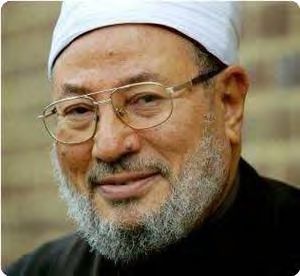
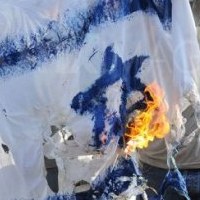
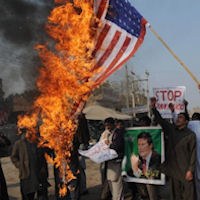
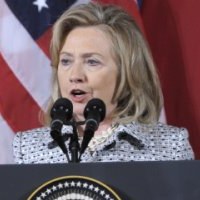

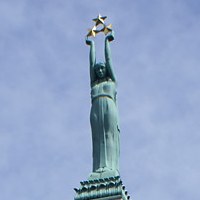




[…] 8. The Muslim Brotherhood in The United Arab Emirates […]
[…] 8. The Muslim Brotherhood in The United Arab Emirates […]
[…] 8. The Muslim Brotherhood in The United Arab Emirates […]
[…] 8. The Muslim Brotherhood in The United Arab Emirates […]